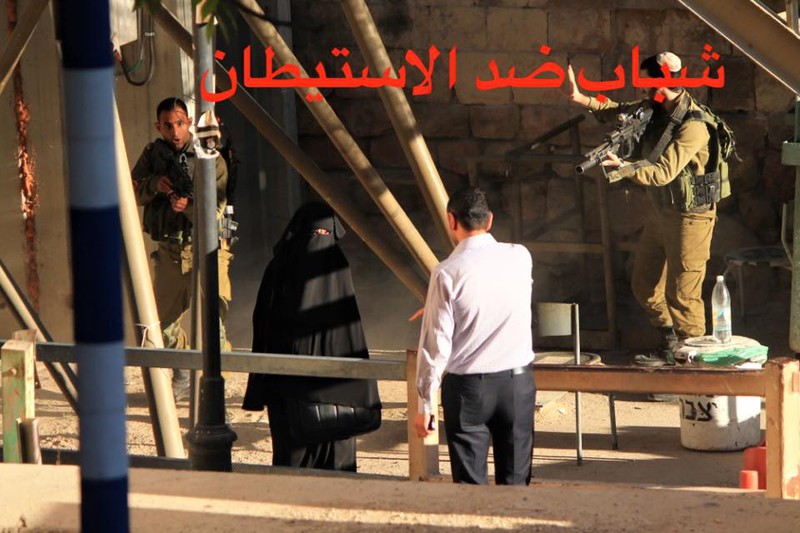Category: Hebron
-
Israeli Forces Murder Female Student at Shuhada Street Checkpoint: “They could have arrested her so easily but they didn´t.”
22nd September 2015 | International Solidarity Movement, Al-Khalil team | Hebron, occupied Palestine A Witness Recounts the Final Moments of 18-year-old Hadil Salah Hashlamoun’s Life. This morning in the Tel Rumeida section of al-Khalil (Hebron) the sound of multiple rounds of live ammunition screamed out from the Shuhada Street checkpoint 56. Standing at the checkpoint…
-
Palestinian teen shot in Hebron by Israeli forces dies from injuries
22nd September 2015 | Ma’an News Agency | Hebron, occupied Palestine A Palestinian teenager shot by Israeli forces at a checkpoint in Hebron died from her injuries on Tuesday, Israeli medical sources said. The teenager, identified as 18-year-old Hadeel al-Hashlamon, was shot three times by Israeli soldiers after allegedly attempting to carry out a stabbing…
-
Israeli soldiers attempt to falsely arrest internationals
22nd September 2015 | International Solidarity Movement, Al-Khalil team | Hebron, occupied Palestine Last night Israeli soldiers threatened to arrest internationals, who were present during the arrest of 3 Palestinian boys in Tel Rumeida, al-Khalil (Hebron). After the 3 boys were brought to the military base, internationals went back into the house in Tel Rumeida.…



